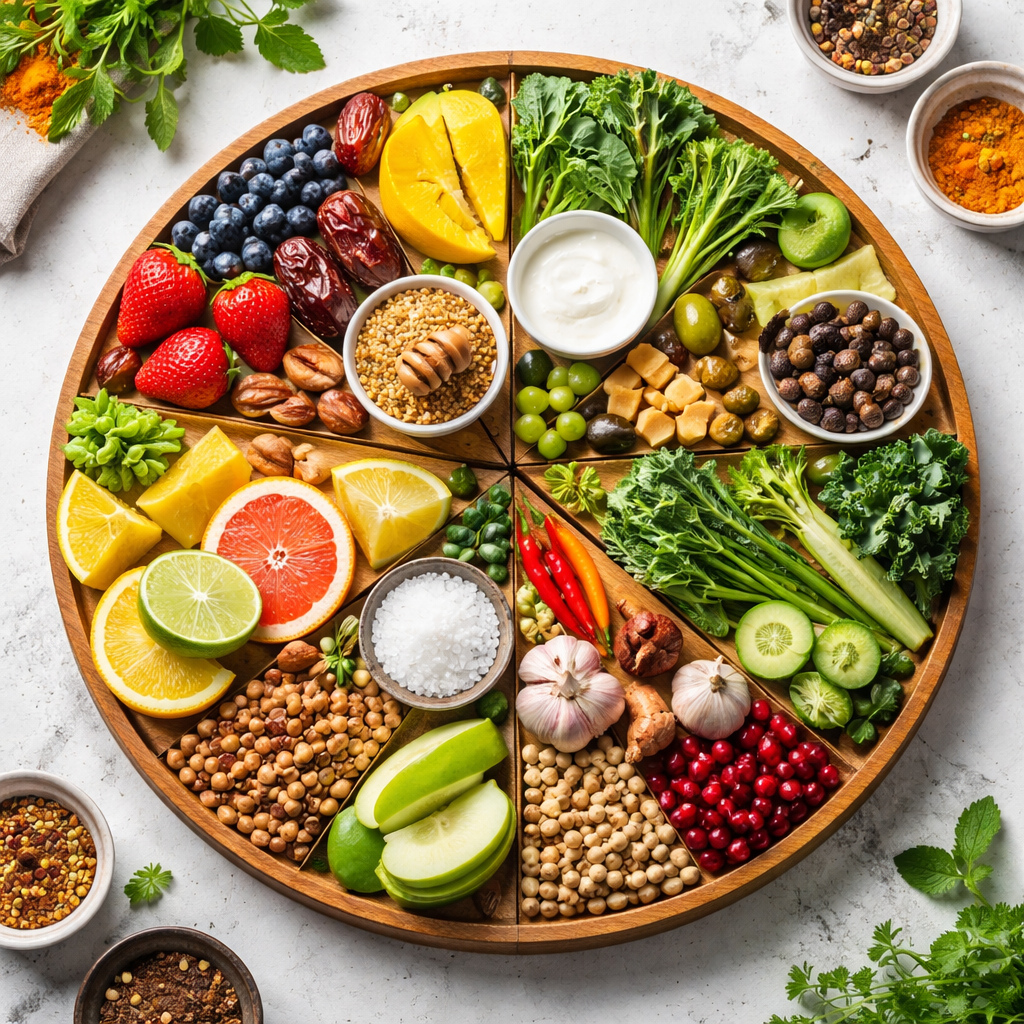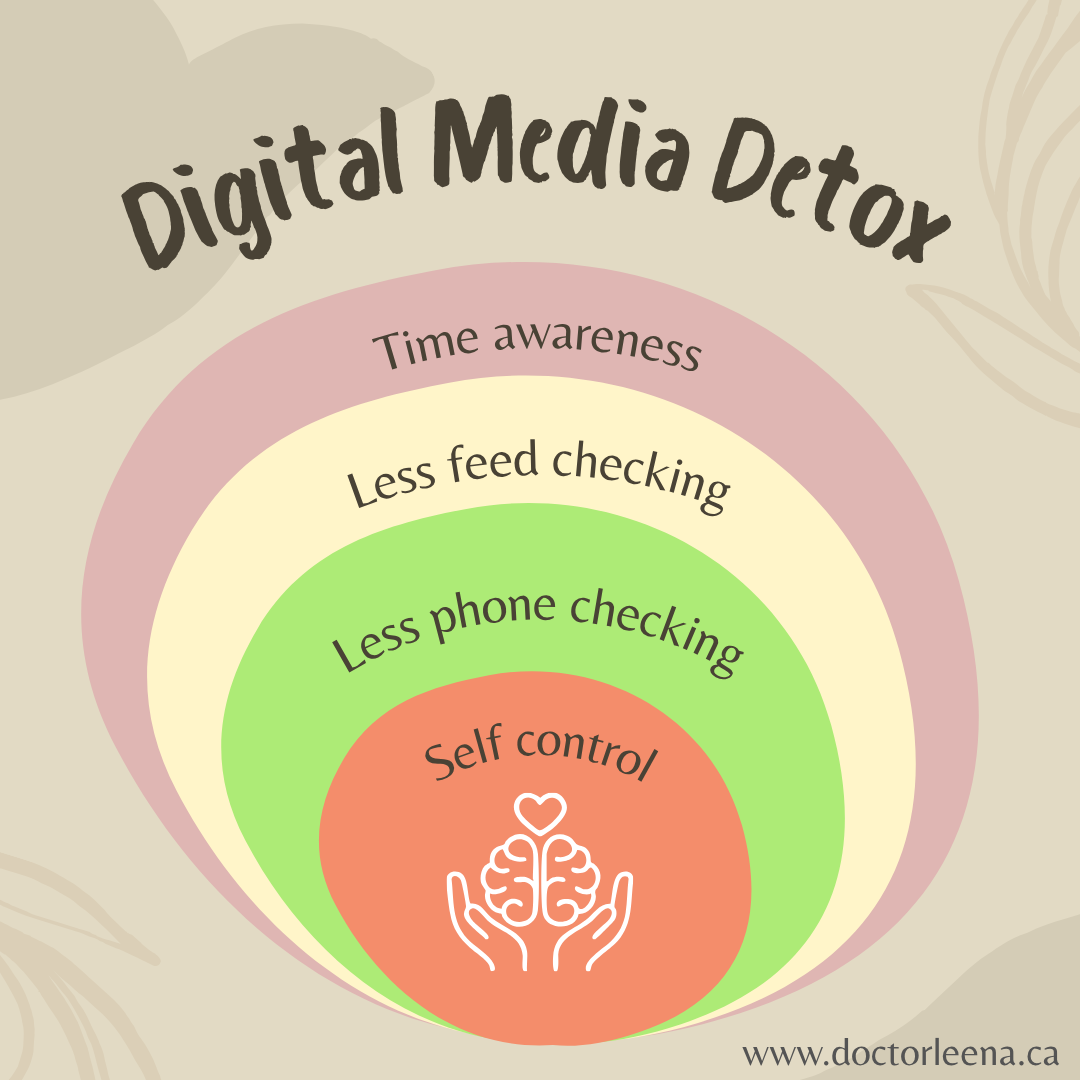
Dr. Leena Sripada’s Blog
Fasting: Is it Right for You?
By Dr. Leena Sripada
Does the thought of going off food for a few hours scare you? How about going off food for a day?
While skipping meals may not be good for you, therapeutic fasting under guidance can have many health benefits. In a world where we are inundated with information on what foods to eat, sometimes taking a short break from food can reset the digestive system and metabolism to process your nutrition more efficiently.
While intermittent fasting is a newer trend that you may have heard of, fasting is not a new concept. If you look at most of the major traditions in the world, fasting was observed in many of the religious and spiritual times of the year: Lent for Christians, Ramadan for Muslims, Passover for Jews, Ekadasi and Shivratri for Hindus. Fasting was often aligned to the natural cleansing periods of the solar and lunar calendars. Spring is one of those significant periods where food is naturally scarce and we can burn up the excess fat stores after winter.
Fasting essentially means abstaining from food for a period of time, but the actual practice of fasting may vary from completely avoiding food and water to taking lighter foods or juices such vegetable broths, coconut water or fruit juices.
What are the different types of fasting?
We will explore common types of fasting and their therapeutic benefits. Speak to your ND before you start any of these fasts for more than one day so they can guide you on the safest and most effective method for you.
Water fasting: this is the most stringent type of fasting where you avoid food and beverages completely other than water. This should only be done under guidance by a health professional and avoided in individuals with blood sugar imbalance. Individuals with a Kapha constitution often respond well to this type of fasting, but you should only do it for a short period of time.
Juice or broth fasting: this fasting involves avoidance of solid food and includes drinking only light beverages that are either fresh pressed fruit or vegetables, herbal teas or cooked broths. These liquids provide nutrition that can be absorbed by the body without taxing the digestive system. Kapha body types do better with vegetable juices with bitter, astringent and pungent tastes like leafy greens and ginger and Pitta types respond well to fresh, cooling juices such as cucumber, celery or watermelon. This type of fasting may be difficult for vatas, but may be done for a short period of time.
Mono diet or Kitchari fast: this fasting doesn't mean you avoid food altogether; you choose specific healthy foods that are simple and easy to digest. Choosing the same combination of food over a period of days allows the body basic nutrition without taxing the digestive system. A typical example is an Ayurvedic kitchari fast where you eat an Ayurvedic stew for each meal of the day and typically is vegetable based and free of common allergens such as wheat, dairy and eggs. Or you may eat only steamed vegetables in a mono diet. This type of 'fasting' is suitable for vata body types.
Intermittent fasting: this method has recently gained popularity and involves eating food during specific times of the day and avoiding food for 16 hours or more. For example, you would skip breakfast and eat lunch & dinner between 1pm - 8pm and avoid food after that. Another method may involve eating a brunch at 10pm, giving a break and eating dinner at 6pm.
What are the benefits of fasting?
Rest is an essential part of healing, and there's no exception for the digestive system. During evolution, humans would alternate between periods of abundant food to scarcity and it would be common to go through days with little food. Fasting activates a process called 'autophagy' where cells break down cell components and damaged structures and use them for energy. This is an essential process of renewal which increases longevity. This process is triggered by around 12-24 hours of fasting. There is a lot of growing research in this field of the benefits of autophagy. When you take a break from eating, initially you may feel weak, but once you pass a certain point, the body kicks start another process to generate fuel.
Some of the benefits you may experience with therapeutic fasting:
Weight loss
Improved energy
Enhanced clarity & focus
Improved digestion
Reduced insulin resistance
Reduced inflammation
Increased longevity
Who can benefit from fasting?
If you have never fasted before, it is important that you start slowly and work with your ND to make a plan based on your body type and health concerns. If you have blood sugar imbalances (diabetes, pre-diabetes or adrenal insufficiency due to stress) fasting may be less advisable for you, though fasting is recommended for some individuals to reduce insulin resistance. Those with a Vata constitution do not do as well avoiding food. Cleansing for this type may include doing a mono-diet (eating the same foods over a period of days or weeks) such as a kitchari cleanse in Ayurveda. Pitta types and Kapha types generally experience many benefits from fasting. For these types, doing a warm herbal tea in the morning and fasting until lunch can support the body in detoxification.
It is always recommended to work with your ND on ways that fasting can be incorporated safely for your body type and lifestyle. Always drink water or herbal teas while fasting (unless you are doing a ‘dry fast’). Incorporating therapeutic fasting into your daily routine will allow your digestive system to rest and your body to go into cleaning mode. When your body has a chance to clean up, you will burn your fuel better, feel lighter and absorb your nutrients more efficiently.
For those of you who would like to do a cleanse, but many be newer to fasting, we invite you to join our 21-day Spring Renewal reset which includes meditation, yoga & a guided kitchari cleanse as part of the program.
PROGRAM STARTS MID FEBRUARY, 2026.
Obstacles to Healing - Ayurvedic Do's & Don'ts
by Dr. Leena Sripada, ND, AAWC
Health is a natural state of balance of harmony - anything that gets in the way of this is an obstacle to healing. You may be doing many things "right" to be healthy, but have you looked at what might be "in the way"? For example, maybe you prepared a delicious, well-balanced meal and suddenly, you get a call from a friend that is upset with you...and you have a tummy ache the rest of the day. Or you have planned to go to the gym every morning in the new year, only to realize that you struggle to wake up in time to do so?
Obstacles to healing can be for example, emotions such as anger or jealousy or lifestyle habits such as eating inappropriate food for the time of day or season. Ayurveda has long recognized the importance of daily routines (dinacharya) and seasonal routines (ritucharya) to prevent disease. While some of these routines may have been considered as superstitious or old fashioned, there are many which have a scientific basis. You might be doing all the right things - eating organic, eating healthy, exercising, taking your supplements but, if certain lifestyle habits are out of alignment, it could be slowing you down. Let's look at a few of the lifestyle habits below and what to avoid:
Ayurvedic Don'ts
1. Cold Smoothies
Smoothies seem like a convenient way to pack in fruits, veggies and proteins in one meal, but when they are loaded with ice or frozen berries it will put out your digestive fire. Digestion requires heat, provided by your metabolic activity and blood circulation to the stomach. Ayurveda considers the digestive fire (jatharagni) to be a driving force in breaking down food in your stomach so when you eat anything cold, digestion quickly slows down. If you are a vata or kapha type, it's like you already struggle from gas or bloating and cold will worsen it. In the morning, your digestive fire is just beginning to wake up. When you eat anything cold, it will take around an hour for it to return to normal temperature depending on your body type. It is best to have smoothies that are room temperature (thaw out berries the previous night or keep the ingredients out of the fridge before blending). Other suggestions include avoiding cold fruits in the morning for breakfast, ice water with meals, or ice cream after meals.
2. Eating While Distracted
You digest best when you are relaxed. When you eating on the go, while walking, driving, or watching tv, your body is in sympathetic mode where the nervous system is activated. When you're distracted, you're less likely to pay attention to your chewing, notice signals from the body that you are full and enjoy the experience of the meal. Ayurveda suggests eating meals when relaxed, sitting down with minimal conversation to digest at your best. How often do you do this? The more you try this, the more likely you will feel satisfied from your meal.
3. Suppression of Natural Urges
How often to you stifle a sneeze, hold your bladder until it's bursting, hold back a yawn in public? Due to hectic schedules or social situations, you may find yourself holding back natural urges until a convenient time or until the urge is gone. Natural urges like going to the bathroom, sneezing, yawning, crying, coughing, feeling hungry, thirsty or tired are natural signs from your body. Ayurveda has actually identified how suppressing specific urges can lead to imbalance and specific illnesses over time by disturbing the flow of doshas in the body and allowing toxins to accumulate (read more). In some cultures, belching after meals is considered a sign that you have eaten well and in other cultures, passing gas goes unnoticed in public. While it may seem unpleasant or socially inappropriate, it is important that you pay attention to what your body is telling you and allow a natural release when possible. Next time you feel like sneezing, try allowing it to happen and see how you feel.
4. Improper Food Timing
You might be eating the "right" food for your body type or health concern, but are your timings off? Your body is tuned to the natural cycles of the day. As the sun rises and reaches peak, so does your digestive strength. As the sun sets and night rolls in, metabolic activity slows down. Tuning your mealtimes according to your digestive strength allows the body to work at its best. When you eat when you are not hungry, or eat large meals at times when digestion is weak, or ignore hunger when you are busy, you are working against the natural forces of nature.
The recommendation is to eat a wholesome breakfast before you start your day, followed by a well balanced lunch between 11-1pm (largest meal at the peak of the day when digestion is at peak) a light afternoon snack, and an early dinner before sunset. For many people, breakfast and lunch are light and quick and they are starving by the evening and either end up eating a very heavy dinner, or snacking before dinner. If you consistently skip breakfast because you don't have time or are not hungry, this creates havoc with your stress hormones. Heavy and late dinners are difficult to digest and lead to bloating, sluggishness and weight gain. By simply adjusting the timings of your meal to optimize your digestion, you will notice that you feel lighter and healthier. Speak with your ayurvedic practitioner who can help guide you on an eating regime customized to you while supporting your digestion
5. Overstimulation of the Sense Organs
Your 5 sense organs are constantly receiving information from your surroundings through vision, hearing, taste, smell and touch. While the senses are crucial for survival, your body's resources are constantly processing this information. When the senses are overstimulated, you may experience sensory overload, and divert energy needed for healing the body. How do you do this? It means reduce screen time, computer games, tv, bright lights and anything which stimulates vision and consequently the the nervous system.
We live in an era where we constantly need to respond to sounds - such as cell phone beeps and calls which easily puts you into sympathetic mode where the body is unable to relax. Impressions through our senses are processed by the brain and leave an impression on the mind. When there is imbalance, this can lead to anxiety, ADHD, hyperactivity and general disturbance. In yoga and Ayurveda, there are several techniques to help you gain control over the 5 senses and currently, "float tanks" (which minimize noise, light and other stimuli) are becoming very popular due to their relaxation benefits.
When you can identify and remove obstacles in your diet and lifestyle, you are allowing the vital healing force of nature doing it's work. Living in disharmony with the environment, the people around us and within ourselves, is the first step of dis-ease. Work with your Ayurvedic practitioner to help you identify obstacles to your health and find harmony in your daily routine.
Sometimes doing “less” is actually doing more. Start your New Year with SIMPLICITY.
Dr Leena Sripada is a naturopathic doctor & Ayurvedic practitioner She applies the Ayurvedic approach to help you realign to your state of healthy balance. If you are healthy and looking into preventing disease or learning more about your constitution, read more here.
Sweet Cravings: Why We Crave Sweet — and What To Do About It
Dr. Leena Sripada, ND, AAWC
For many people, sweet cravings intensify during the holiday season. Shorter days, colder weather, festive gatherings, emotional triggers, and an abundance of treats around can make it feel nearly impossible to say no to sugar — even when you tell yourself you are going to be careful this year. We all know its not good for us, and sometimes we don’t even feel good eating sweet….so why are we stuck in the craving loop?
From an Ayurvedic perspective, sweet cravings aren’t a failure of willpower. They’re a signal from the body asking for nourishment, grounding, comfort, or energy. Understanding why these cravings arise is the first step toward working with them in a supportive and sustainable way instead of against them.
The Sweet Taste in Ayurveda: One of the Six Tastes
Ayurveda recognizes six tastes that make up a balanced diet:
Sweet
Sour
Salty
Bitter
Pungent (spicy)
Astringent
The sweet taste is the first and most foundational of the six. In balance, it is nourishing, grounding, strengthening, and soothing. Sweet taste builds tissues, supports immunity (ojas), calms the nervous system, and promotes feelings of safety and satisfaction.
Naturally sweet foods include:
Whole grains
Root vegetables
Milk
Fruits
Honey, maple syrup, dates etc.
When sweet taste is consumed in its whole-food form, it is deeply supportive. Problems arise when sweet taste is overconsumed — especially as refined sugar — or used to compensate for deeper imbalances.
—> Before we move on….can you take a moment to look at how much on your daily plate is “sweet in taste”? This includes carbs, dairy, sweet veggies like carrots, peas, beets and the obvious sweets like cookies, cakes, chocolates, juice.
Why We Crave Sweet Foods
1. Blood Sugar Imbalances
One of the most common reasons for sweet cravings is unstable blood sugar. Skipping meals, under-eating protein, or relying heavily on refined carbohydrates can lead to blood sugar crashes. When glucose drops, the body urgently seeks quick energy, and sugar becomes the fastest solution.
This cycle can be especially pronounced during busy holiday schedules when meals are irregular. This is common in individuals who are pre-diabetic (and may not know it) but also when you have a vata constitution where stress triggers blood sugar to go up and down. If you are concerned about this, speak with your naturopathic doctor to have additional testing done including Ha1c, fasting blood glucose and fasting insulin (a test most GPs are not doing but should be checking).
2. Stress and Nervous System
It’s important to understand that wweet taste is calming to Vata and Pitta doshas. During times of stress, overwhelm, or burnout, the nervous system craves grounding and comfort — and sweet foods temporarily provide that sense of relief. This is why cravings often intensify when you’re tired, emotionally drained, or juggling too many responsibilities. Sweet taste also “cools” down Pitta dosha. Think of when you eat something too spicy, you want something sweet to cool down your tongue.
3. Candida and Gut Imbalances
An overgrowth of yeast such as candida can drive intense sugar cravings. Yeast feeds on sugar, creating a self-perpetuating cycle of craving and consumption. This is often accompanied by digestive symptoms, fatigue, brain fog, or recurrent infections. This may manifest as yeast infections — but not always. Candida can grow anywhere in the body especially in the digestive tract leading to significant gas & bloating. You naturopathic doctor can help you identify if you have a candida issue and treat it accordingly.
4. The Body Seeking Instant Energy
At a basic physiological level, sugar is a fast fuel source. When digestion (agni) is weak, stress hormones are elevated, or nutrient intake is inadequate, the body looks for the quickest energy available — refined sugar fits that role perfectly. When you are rushed and on the go, it is a quick source of fuel to get you by — but you will inevitably crash aftewards.
Why Refined Sugar Makes Cravings Worse
Refined sugar is stripped of fiber, minerals, and life force (prana). It causes rapid blood sugar spikes followed by crashes, increases inflammation, feeds harmful gut microbes, and strains the adrenal glands.
Over time, excess refined sugar can:
Worsen insulin resistance
Disrupt gut health
Increase anxiety and mood swings
Deplete minerals needed for energy and hormone balance
And it is no doubt “addictive”
Better Sweeteners from an Ayurvedic Perspective
Ayurveda doesn’t say you can’t enjoy sweet — it encourages better forms of sweet taste and understands which body types need what.
Healthier sweeteners include:
Raw honey (never cooked)
Pure maple syrup
Jaggery
Coconut sugar
These sweeteners still require moderation, but they provide nourishment rather than depletion when used mindfully. Then there is monk fruit extract and stevia which are used to mimic sweet taste naturally without spiking your blood sugar.
The Emotional Side of Sweet Cravings
On a deeper level, sweet taste is emotionally comforting, reassuring, and nurturing. It’s often our first association with love — breast milk, warm meals, family traditions, and celebrations.
During the holidays, sweet cravings may arise not just from physical hunger, but from:
Loneliness or grief
Emotional overwhelm
Feeling ungrounded or unsupported
A need for rest, pleasure, or reassurance
Recognizing the emotional layer of cravings allows us to respond with compassion rather than restriction. Pay attention to how you are feeling. Simply making space to feel what you are feeling and listen to what is going on is the first step to addressing cravings.
Simple Tips to Curb Holiday Sweet Cravings
If sugar is something you struggle with, take a look at the suggestions below. Can you commit to 1-2 changes this week?
Eat regular, grounding meals with protein, healthy fats, and warm cooked foods
Include naturally sweet foods like roasted root vegetables, oats, and stewed fruit
Balance your plate — ensure all six tastes are present
Pause before reaching for sweets and ask: “What do I actually need right now?”
Support your nervous system with warm teas, meditation, and adequate sleep
Choose better sweeteners and savour them slowly, without guilt
A Gentle Reminder
Sweet cravings are not something to “fight.” They are information. When we listen closely, they guide us back to nourishment, balance, and care — especially during the emotionally rich and demanding holiday season. Working with cravings rather than against them is the most sustainable path to lasting health.
And if this is something you have tried but find it hard to do on your own — its ok, this is a very common challenge. You can work with your practitioner
***
In my practice, I have seen people struggle for years but I have also seen many people come out of cravings within weeks with the right customized approach with Ayurvedic understanding, balanced diet, cleansing herbs and the right mindset — to the point where they feel like their taste buds have changed and they no longer crave sweets. Then they feel truly free.
If this is something you would like to work on, speak with Dr. Leena Sripada, ND.
Digital Fasting: Resetting Your Brain in an Always-On World
The benefits of unplugging or detoxing from digital devices to recharge our own battery and health.
We’ve all heard of intermittent fasting — taking scheduled breaks from food to detox the body, reset digestion, and improve blood sugar balance. But there’s another kind of fasting that’s just as vital for our well-being: digital fasting.
Do you remember what it was like around 15-20 years ago when there were no smartphones?
Digital fasting means consciously taking breaks from technology — your phone, laptop, TV, social media, and even notifications. It’s a reset for your brain and nervous system in a world that never stops pinging, buzzing, or demanding your attention.
The Hidden Drain on Our Energy
Last week, I offered a webinar on women’s health and burnout and we were talking about all the factors that lead us to feeling depleted. Later that week while I was reflecting on our discussion, there was once obvious ‘drain’ that I had overseen: the digital drain. We often talk about overwork, lack of sleep, emotional fatigue and lack of vitamins — but few of us recognize how constant digital exposure depletes our internal battery.
And its happening more and more and to YOUNGER PEOPLE as well - including teens & children.
Every beep, vibration, and pop-up nudges our nervous system into “on” mode. Even when we’re not consciously reacting, our bodies are subtly preparing to respond — a continuous low-level stress that keeps adrenaline trickling and prevents full rest. Over time, this leaves us frazzled, distracted, and strangely tired even after a “quiet” day online.
The Dopamine Loop
Have you heard about dopamine? Each scroll, click, or notification gives us a tiny hit of dopamine — the same neurotransmitter linked to motivation and reward. This creates a powerful feedback loop: we keep checking, refreshing, and consuming to feel that next micro-burst of pleasure. There is an empty sense of accomplishment.
But the problem? Our brains were never designed for such constant stimulation. Over time, we build tolerance, meaning we need more digital input to feel satisfied — just like any other form of addiction. That’s why many people feel anxious when they try to “unplug.”
Why Digital Fasting Works
Just like intermittent fasting allows the body to rest and repair, digital fasting gives the mind space to recalibrate. When you consciously unplug:
You stop energy leaks. Constant notifications drain your attention — and attention is energy. Reducing digital noise allows you to reclaim mental clarity.
Your nervous system resets. The absence of digital triggers lets your body downshift from “fight or flight” into “rest and digest.”
You reconnect with the present. Without the pull of screens, conversations become deeper, food tastes better, and you notice small joys that often go unseen.
Creativity and focus return. When your mind isn’t overstimulated, it naturally finds flow again.
How to Practice Digital Fasting
There’s no one right way to do it — start small and build gradually. Here are some ideas:
The 16-Hour Digital Fast – Similar to intermittent fasting, pick a 16-hour window (for example, 8 p.m. to noon) where you completely unplug. Use mornings for reflection, journaling, or movement before logging on.
No Phone First Thing – Delay checking your phone for the first hour after waking. Protect your mental space before the world’s noise enters.
No Social Media Before Noon – Give your brain time to focus on creative or meaningful work before the dopamine hits of scrolling.
24-Hour Digital Break – One day a week, disconnect entirely. Read, walk, cook, or spend time with loved ones — screen-free.
Tech-Free Zones – Keep phones out of bedrooms and dining areas. Create sacred spaces for rest and connection.
Tools That Can Help
Ironically, a few smart apps can support your digital fast:
Freedom – block distracting sites and apps for set periods.
Forest – gamifies focus by growing a virtual tree each time you stay off your phone.
Digital Wellbeing (Android) or Screen Time (iPhone) – track usage and set limits.
In the end, digital fasting isn’t about rejecting technology - it’s about reclaiming balance and using it wisely instead of being ‘run by it’.
By stepping back from the constant noise, we conserve energy, restore focus, and return to what truly matters: being fully present, grounded, and alive in our own lives. If you struggle with anxiety, lack of focus, exhaustion or burnout - consider a digital fast as part of your routine. Don’t just think about it, make a plan.
Need some support with this? Let’s talk about a strategy to support your nervous system.
Reset Your Rhythm: Daylight Saving Cortisol Balance & Ayurveda
Understanding cortisol and daylight savings with Ayurveda.
Dr. Leena Sripada, ND, AAWC
As daylight saving time arrived this past weekend, it prompted me to reflect on our circadian rhythms and what it takes to maintain a smooth transition with a 1- hour difference. Many of us feel subtly “off.” Our mornings may more relaxed….or groggier with sleeping in and our evenings more restless or tired with the earlier sunset and it can take days—or even weeks—to feel in sync again. While this may seem like a small modern inconvenience, Ayurveda recognized the importance of these internal and external rhythms thousands of years ago.
This seasonal clock change is an invitation to pause and realign our body’s natural rhythms—especially the delicate dance between cortisol, our primary stress hormone, and the body’s circadian clock.
The Science of Cortisol and the Circadian Rhythm
Cortisol is an essential hormone - its not just a stress hormone, but a hormone which helps us feel alert, awake and energized. It follows a precise daily rhythm: it peaks in the early morning, helping us wake up with energy, and gradually decline through the day, reaching its lowest levels at night to allow rest and repair.
But when our light exposure, meal timing, or sleep schedule shift—even by an hour—this rhythm can become disrupted.
You might notice:
Difficulty falling asleep or waking up,
Midday drops of energy or “wired but tired” energy at night,
Increased cravings or stress sensitivity.
Cortisol is deeply tied to our body’s internal clock, influencing metabolism, mood, digestion, and immune balance. A sudden time shift can feel like mild jet lag to our adrenal and nervous systems.
Ayurveda’s Wisdom on Daily Rhythms
Long before modern chronobiology, Ayurveda described the importance of aligning with the cycles of nature—what we now call circadian rhythms. Through dinacharya, or daily routine, Ayurveda teaches that the body, mind, and spirit thrive when we rise, eat, work, and rest in harmony with the movements of the sun.
Each time of day is governed by a different dosha:
Kapha (6–10 a.m./p.m.) – grounded, steady energy; ideal for gentle movement and consistency.
Pitta (10 a.m.–2 p.m./p.m.) – sharp, focused energy; best for digestion and productivity.
Vata (2–6 a.m./p.m.) – light, creative energy; ideal for meditation or reflective evening wind-downs.
When we follow these natural doshic cycles, cortisol naturally aligns with its intended rhythm. When we resist them—staying up late, skipping meals, or working through the night—our hormones, digestion, and sleep fall out of sync.
What the Time Change Teaches Us
The shift in daylight is more than a logistical adjustment, it’s a reminder to come back to rhythmic living. Our bodies rely on consistency: light cues, mealtimes, and rest cycles are all anchors for hormonal balance.
Ayurveda views this transition as a Vata-aggravating moment, when instability and overstimulation increase. To ground this energy, we can emphasize warmth, nourishment, and steady self-care rituals that restore calm and structure.
Even simple acts like stepping outside into morning sunlight, maintaining regular mealtimes, and winding down with warm oil massage or herbal tea in the evening can help reorient the body.
Ayurvedic Tips to Reset After the Time Change
1. Morning sun.
Within an hour of waking, expose yourself to natural light, ideally outdoors. This signals your brain to raise cortisol naturally and reset your circadian clock. It is the simplest thing to help us reset, yet how many of us do it, in modern day?
2. Keep consistent wake and sleep times.
Try to wake and sleep at the same time daily—even on weekends. Regularity is medicine for Vata imbalance.
3. Eat your main meal at midday.
Follow the sun’s peak energy (Pitta time) for your largest, most nourishing meal. This reinforces healthy digestion and energy flow.
4. Ground your evenings.
Dim lights after sunset, avoid overstimulation, and include calming rituals such as abhyanga (warm oil self-massage), gentle yoga, or sipping spiced herbal milk or tea.
5. Support your adrenals with adaptogens.
Herbs like ashwagandha, shatavari, rhodiola and licorice help buffer stress and promote a balanced cortisol rhythm. Speak with your Ayurvedic practitioner.
A Moment to Realign
This subtle one-hour shift in time can serve as a powerful reminder: our bodies are always in dialogue with nature. When we honor the rising and setting of the sun, eat and rest with consistency, and live in rhythm with the earth’s cycles, we restore balance not just to our hormones—but to our sense of ease, clarity, and vitality.
As the clocks change, let this be your gentle nudge to reset your rhythm—to bring awareness, anchor your routines, and let your internal clock find harmony once again.
Want to learn more?
🌿 Join me for an upcoming webinar on “Avoid Burnout with Ayurveda”
We’ll explore how to naturally support your cortisol, daily rhythms and strengthen your energy, to prevent burnout with Ayurvedic and naturopathic tools.
Feeling Burnt Out?
Understanding ‘adrenal fatigue’ and the Ayurvedic approach to healing burnout.
Understanding the 4 Stages of Adrenal Fatigue — and How Ayurveda Can Help
Do you ever hit that afternoon crash, reaching for coffee or sugar just to make it through the day?
Do you wake up tired even after a full night’s sleep, or feel wired but tired late at night?
You’re not alone — and it’s not “just stress.” It could be adrenal insufficiency, also known as adrenal burnout or adrenal fatigue is your body’s way of saying enough is enough. It’s time to find the leaks and start rebuilding.
What Is Adrenal Insufficiency (or Adrenal Fatigue)?
Your adrenal glands are two small but mighty glands that sit on top of your kidneys. They produce hormones like cortisol, adrenaline, and DHEA, which regulate energy, metabolism, stress response, and immune balance.
When life’s stressors pile up — emotional strain, overwork, poor sleep, or chronic inflammation — your adrenals are forced to stay “switched on” for too long. This constant cortisol output keeps you in survival mode and gradually leads to depletion, leaving you fatigued, foggy, and less resilient.
While “adrenal fatigue” isn’t a formal medical diagnosis, in naturopathic and Ayurvedic medicine it represents a functional imbalance — the stage between optimal health and burnout. Ayurveda describes this as a loss of ojas, your deep life essence that governs immunity, vitality, and emotional stability.
The 4 Stages of Adrenal Fatigue
Stage 1: The Alarm Phase – Wired for Survival
Your body responds to stress with a rush of cortisol and adrenaline. You feel alert, driven, and capable — maybe even unstoppable. Sleep might feel optional, and your to-do list never ends.
But inside, your nervous system is stuck in fight-or-flight mode.
Ayurvedically: This is a Pitta imbalance — fire in overdrive.
Signs: Racing thoughts, anxiety, irritability, insomnia, and digestive upset.
Stage 2: The Resistance Phase – Running on Reserve
The stress continues. Cortisol remains moderately high to keep you going. You’re functioning — but fatigue starts creeping in. You rely on caffeine or sugar for energy and may notice afternoon crashes, bloating, or PMS symptoms.
Ayurvedically: Both Pitta and Vata are now disturbed — the fire flickers, and the wind fans it unpredictably.
Signs: Brain fog, irregular sleep, caffeine dependence, mild weight gain, and restlessness.
Stage 3: The Exhaustion Phase – When the Tank Is Empty
Now cortisol production begins to decline. You wake up tired, feel tired all day, and crave salty or sweet foods. Small stressors feel overwhelming. Your immunity dips, and you may experience depression or hormonal irregularities.
Ayurvedically: Vata predominates — the system is dry, depleted, and unstable. Ojas (vital energy) is low.
Signs: Fatigue, dizziness, low mood, low libido, and frequent illness.
Stage 4: Burnout – Adrenal Insufficiency
Your adrenals can no longer meet the body’s demands. You feel detached, flat, and unable to recover from even minor exertion. Thyroid imbalances, chronic fatigue, and blood sugar instability often appear.
Ayurvedically: Profound ojas depletion and dhatu (tissue) weakness.
Signs: Emotional numbness, exhaustion, poor stress tolerance, and deep physical fatigue.
Why It Happens
In today’s world, we often live in constant output mode — caring, managing, achieving, and rarely pausing. Emotional suppression, multitasking, nutrient-poor diets, and lack of true rest create a chronic stress loop.
From an Ayurvedic perspective, burnout is the result of Vata aggravation (nervous system overactivity) and ojas depletion (loss of essence and resilience). It’s your body’s way of saying, “You’ve been giving more than you’ve been receiving.”
✨ SO WHERE TO YOU SEE YOURSELF IN THE STAGES ABOVE? ✨
How to Prevent and Support Burnout Naturally
Healing from adrenal fatigue is about restoring rhythm, nourishing deeply, and rebuilding ojas — your body’s sacred reserve of energy and immunity.
🌿 1. Prioritize Rest and Routine
Create a soothing daily rhythm (dinacharya):
Wake and sleep at consistent times, eat warm meals, and build mini-rest moments into your day. Going to bed before 10 p.m. supports natural cortisol rhythms.
🧘♀️ 2. Calm the Nervous System
Gentle yoga, pranayama, meditation, and nature walks help retrain your stress response. Ten minutes of deep breathing daily can signal to your body that it’s safe to relax.
🥣 3. Nourish Deeply
Favor warm, grounding foods: root vegetables, soups, ghee, oatmeal, dates, and soaked almonds. Avoid skipping meals or relying on caffeine and sugar which only temporarily give energy but deplete you in the long-run.
Adaptogens are herbs that are strengthening tonics and may include
Ashwagandha – Calms the mind and rebuilds adrenal strength.
Shatavari – Restores feminine hormones and vitality.
Licorice root – Supports cortisol balance (avoid with high blood pressure).
Gingsengs and more
This is always best customized by your practitioner as herbs that are aligned to your system will be the most efficient and safe.
💛 4. Rebuild Ojas
Replenish your ojas with daily abhyanga (warm oil self-massage), spiced milk with nutmeg or cardamom before bed, and cultivating joy, gratitude, and meaningful connection.
☀️ 5. Address Root Causes
Work with a qualified naturopathic or Ayurvedic practitioner to uncover underlying stressors — such as nutrient deficiencies, thyroid issues, emotional burnout, or chronic inflammation and to support you based on which stage you are in. Healing requires addressing both the physical and emotional roots. THIS TAKES TIME AND GUIDANCE TO HEAL.
🌸 Ready to Prevent Burnout — the Ayurvedic Way?
Burnout isn’t a personal failure — it’s a wise message from your body to pause, replenish, and return to balance.
By aligning with your natural rhythms, nourishing yourself deeply, and restoring ojas, you can rediscover calm, clarity, and vibrant energy.
Your body has an incredible capacity to heal — when you give it permission to rest.
Join me for my upcoming FREE WEBINAR: “Preventing Burnout with Ayurveda”, where we’ll explore how to understand your unique dosha patterns, balance your nervous system, and rebuild resilience naturally.
✨ Reserve your FREE SPOT on Saturday Nov. 8th ——> here: ✨









